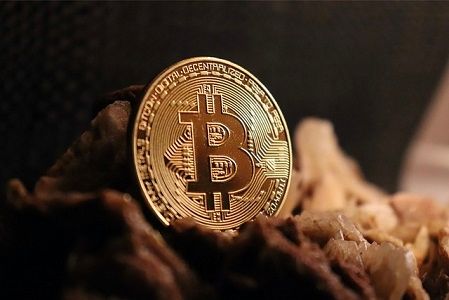What next for the Nifty 50 index and Indian rupee (USD/INR)?

The Nifty 50 index and the USD/INR exchange rate were on edge as investors reflected on the changes to the Reserve Bank of India (RBI). The blue-chip index was trading at ₹24,600, up by 5% from its November lows.
Meanwhile, the USD/INR exchange rate rose to 84.85, a record high. It has risen by over 2% this year, and analysts expect the Indian rupee to continue its downward trend over time.
Reserve Bank of India changes
The Nifty 50 and USD/INR pair reacted to the decision by the government to replace Shaktikanta Das as the head of the Reserve Bank of India this week. He will be replaced by Sanjay Malhotra, a career bureaucrat to be the next head.
This was an important decision as it came a few days after India released relatively weak GDP numbers. The data showed that the economy slowed to 5.4% in the third quarter, missing the expected forecast of 6.5%.
As a result, the RBI and other economists have downgraded their estimate for the country’s growth path for the year. For example, analysts at ADB slashed their estimate for the Indian economy to 6.5% from the previous 7.0%.
The RBI also slashed estimates from 7.2% to 6.6%. Also, the bank hinted that inflation will remain strong, with retail inflation in FY25 expected to be 4.8%, up from the previous estimate of 4.5%.
Therefore, with the economy slowing, analysts now expect that the RBI will start cutting interest rates as soon as in its February meeting. Last week, the bank left rates unchanged, but slashed the cash reserve ratio by 50 basis points to 4%. The RBI hopes that cutting that ratio will infuse about $13.7 billion into the banking system.
Top Nifty 50 constituents
Most companies in the Nifty 50 index were relatively unchanged on Wednesday. Britannia Industries, a leading manufacturer of snacks, was the best-performing company in the index as it jumped by 1.8%. Still, the stock has retreated by about 25% from the year-to-date high as its growth slowed.
UltraTech Cement stock rose by almost 2% on Wednesday and was trading at ₹12,000, a few points below the year-to-date high of ₹12,122. It has soared by 135% from its 2022 lows as demand for cement in the country rose.
Nestle India’s shares rose by 1.56%, while Tata Consumer Products, Hindalco Industries, Grasim Industries, and Bharat Petroleum Industries were the other notable gainers.
On the other hand, the top laggards in the Nifty 50 index were HCL Tech, ICICI Bank, Tech Mahindra, Wipro, and Adani Ports & SEZ.
Nifty 50 index analysis
The daily chart shows that the Nifty 50 index has crawled back in the past few weeks. It has risen from ₹23,280 to the current ₹24,630. The index has moved above the 50-day and 100-day Exponential Moving Averages (EMA). It has also formed a small inverse head and shoulders pattern.
Therefore, the index will likely continue rising as bulls target the next key resistance level at ₹25,000. A break above that level would lead to more gains to about ₹26,000 in the longer term.
The risk, however, is that the index has formed a rising broadening wedge pattern, a popular bearish reversal sign. A drop below the lower side of the wedge pattern will point to more gains.
USD/INR forecast
The daily chart shows that the USD to INR exchange rate has been in a strong bull run in the past few months. It recently rallied above the ascending channel shown in black.
The pair has moved above the 50-day and 100-day Exponential Moving Averages, while oscillators have continued rising. Therefore, the USD/INR pair will likely keep rising as bulls target the next point at 86.50, as Nomura analysts expect.
The post What next for the Nifty 50 index and Indian rupee (USD/INR)? appeared first on Invezz



